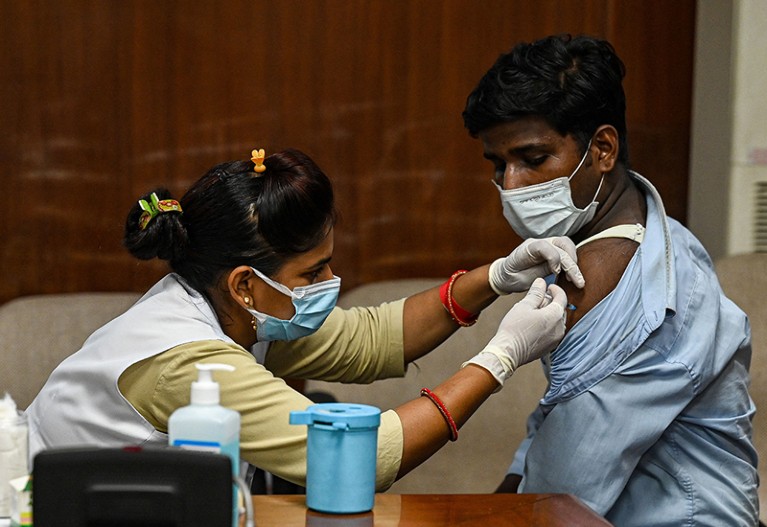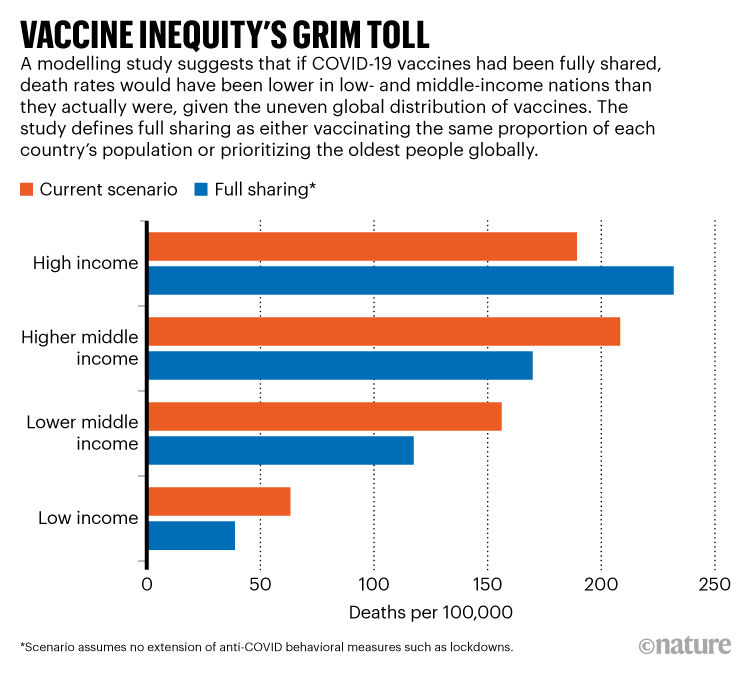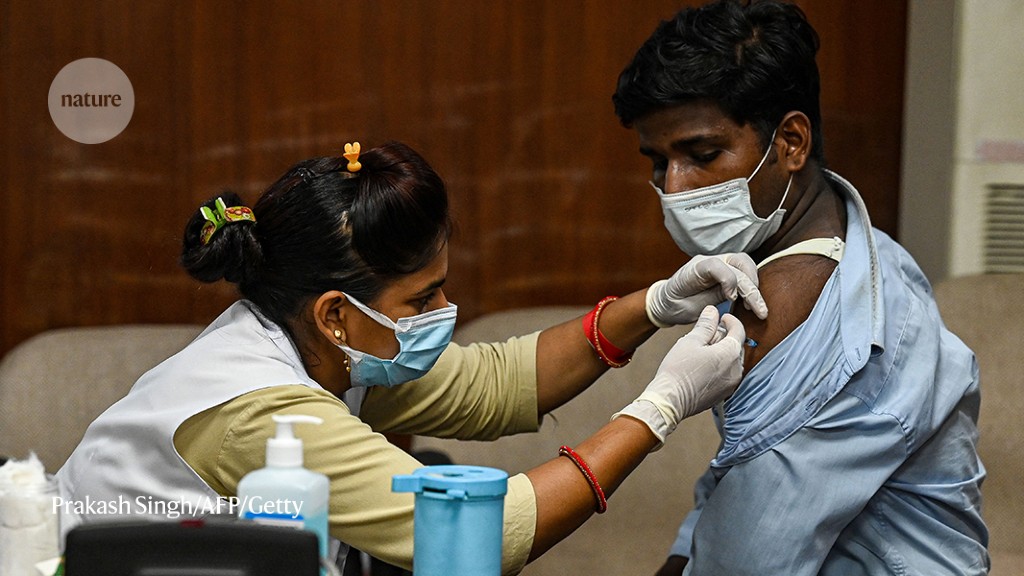
A well being employee vaccinates a person in India towards COVID-19.Credit score: Prakash Singh/AFP/Getty
Multiple million lives might need been saved if COVID-19 vaccines had been shared extra equitably with lower-income nations in 2021, in keeping with mathematical fashions incorporating knowledge from 152 nations1.
The affect of vaccine sharing would have been even larger if the distribution of extra vaccines to poorer nations occurred alongside wealthier nations protecting different mitigation measures — akin to smaller gatherings and masks carrying — in place for longer. In that case, the fashions counsel, as many as 3.8 million lives may have been saved.
It has been extensively assumed that inequitable vaccine distribution led to pointless lack of life. However having an estimate of the dimensions of that loss may help in planning for future epidemics, says Oliver Watson, an infectious-disease epidemiologist at Imperial School London. “That is one other piece of proof to indicate how large of an affect pushing for vaccine protection might have had,” he says. “That’s actually essential for partaking political will and framing large political selections.”
Stark hole
By the top of final yr, practically half of the world’s inhabitants had obtained two doses of a COVID-19 vaccine. However these vaccines weren’t distributed equitably: vaccination charges have been 75% in high-income nations, however lower than 2% in some low-income nations. Rich nations ended the yr with vaccine surpluses and plans to vaccinate younger youngsters, who’re at comparatively low danger of significant illness. In the meantime, many poorer nations nonetheless didn’t have sufficient provide to vaccinate the folks at highest danger of dying from COVID-19.
Mathematical epidemiologist Sam Moore and his colleagues on the College of Warwick in Coventry, UK, used knowledge on extra mortality and vaccine availability to mannequin what would have occurred if vaccines had been distributed in keeping with want reasonably than wealth. They thought of the affect of vaccination on each SARS-CoV-2 unfold and the severity of COVID-19.
The group discovered that, assuming no different insurance policies that diminished bodily contact, extra equitable vaccine protection may have prevented 1.3 million deaths worldwide (see ‘Vaccine inequity’s grim toll’)1. Greater than twice that many deaths would have been prevented if higher-income nations had additionally caught with different measures to cut back transmission. The outcomes have been printed on 27 October in Nature Medication.

Supply: Ref. 1
The research appeared solely at vaccine provisions, and didn’t think about different components, such because the capability to retailer and administer the photographs.
The outcomes mesh nicely with a earlier research carried out by Watson and his colleagues, which used an analogous modelling method however with totally different knowledge. That research discovered that about 45% of COVID-19 deaths in low-income nations may have been averted if the nations had achieved 20% vaccination protection by the top of 2021, a goal set by the worldwide vaccine-sharing marketing campaign COVAX2.
The pandemic’s true dying toll: tens of millions greater than official counts
Extra equitable sharing of vaccines, and a ensuing drop in infections, may additionally have slowed the emergence of recent SARS-CoV-2 variants, says Moore.
Policymakers may look to research like these to put the groundwork for higher responses to the following pandemic. Though it won’t be reasonable to count on nations to present away vaccine provides earlier than vaccinating their very own residents, governments would possibly be capable of discover a center floor, Moore says. “First-world nations would possibly vaccinate everybody over the age of 60 to guard probably the most susceptible inhabitants, earlier than serving to different nations to catch up,” he says. “Even when not equitable, possibly there could be some type of room for serving to different nations when you’ve managed to get your personal vaccine in place to some extent.”


